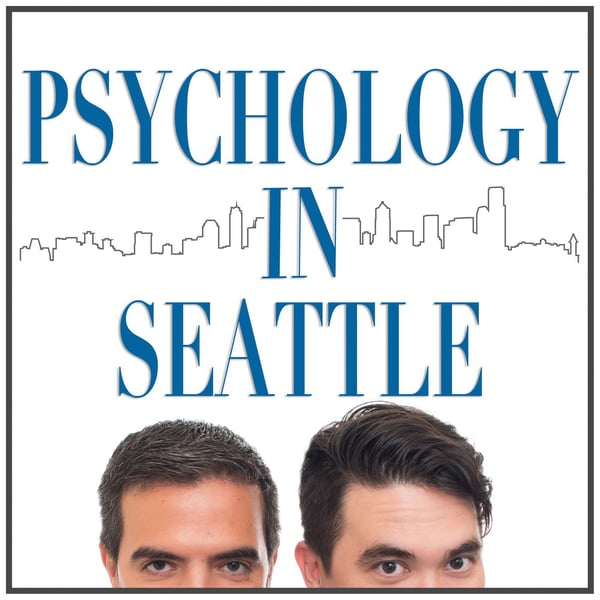The Psychology of Josh Powell (Chapter 10 - Diagnosis)
Psychology In Seattle Podcast
Kirk Honda
4.6 • 1.2K Ratings
🗓️ 10 June 2024
⏱️ 48 minutes
🧾️ Download transcript
Summary
This episode is sponsored by BetterHelp. Give online therapy a try at betterhelp.com/KIRK to get 10% off your first month.
00:00 Update on the 911 operator
03:42 Video clips of Susan & Alina's perspective
18:32 The dark tetrad & Steven's conceptualization
41:17 Steven's possible attachment injury
Become a member: https://www.youtube.com/channel/UCOUZWV1DRtHtpP2H48S7iiw/join
Become a patron: https://www.patreon.com/PsychologyInSeattle
Email: https://www.psychologyinseattle.com/contact
Website: https://www.psychologyinseattle.com
Merch: https://teespring.com/stores/psychology-in-seattle
Cameo: https://www.cameo.com/kirkhonda
Instagram: https://www.instagram.com/psychologyinseattle/
Facebook Official Page: https://www.facebook.com/PsychologyInSeattle/
TikTok: https://www.tiktok.com/@kirk.honda
June 10, 2024
The Psychology In Seattle Podcast ®
Trigger Warning: This episode may include topics such as assault, trauma, and discrimination. If necessary, listeners are encouraged to refrain from listening and care for their safety and well-being.
Disclaimer: The content provided is for educational, informational, and entertainment purposes only. Nothing here constitutes personal or professional consultation, therapy, diagnosis, or creates a counselor-client relationship. Topics discussed may generate differing points of view. If you participate (by being a guest, submitting a question, or commenting) you must do so with the knowledge that we cannot control reactions or responses from others, which may not agree with you or feel unfair. Your participation on this site is at your own risk, accepting full responsibility for any liability or harm that may result. Anything you write here may be used for discussion or endorsement of the podcast. Opinions and views expressed by the host and guest hosts are personal views. Although, we take precautions and fact check, they should not be considered facts and the opinions may change. Opinions posted by participants (such as comments) are not those of the hosts. Readers should not rely on any information found here and should perform due diligence before taking any action. For a more extensive description of factors for you to consider, please see www.psychologyinseattle.com
Transcript
Click on a timestamp to play from that location
| 0:00.0 | Hey deserve listeners, this is chapter 10 in our deep dive on the psychology of Josh Powell. |
| 0:05.6 | This is the final episode in this series in which I provide my conceptualizations of both Stephen and Josh, my hypothesized diagnoses. |
| 0:17.0 | I can't diagnose from afar, of course, but I can hypothesize based on the data available to us. |
| 0:24.1 | But first, I want to talk about something |
| 0:26.6 | I forgot to talk about in the previous episode. |
| 0:29.1 | So you remember the 911 operator that took the call from Elizabeth Griffin Hall, the supervised |
| 0:35.8 | visitation worker who was outside Josh's house calling frantically and how the |
| 0:42.4 | 911 operator seemed indifferent, incompetent, |
| 0:48.0 | something. Well, an update on that individual, that 911 operator, is that apparently now he is teaching classes |
| 0:59.2 | on how not to do what he did. |
| 1:02.4 | He's teaching classes to other 911 operators and specifically he |
| 1:07.0 | talks about compassion fatigue. You know for us non-psychopaths we have empathy |
| 1:11.7 | we care about others we have altruism and we have compassion and |
| 1:17.2 | typically people who enter certain careers have even more empathy and more compassion like a 911 operator or a therapist or a |
| 1:26.4 | first responder. These people tend to choose these jobs because they want to |
| 1:31.6 | make a difference and they care. And they do their job and there's a lot of opportunity to experience some intense situations where people are suffering and you care, so you're trying to help. But over time, and there's a lot of different pathways to this and there's protective factors and da da da. |
| 1:53.8 | But you could imagine somebody becoming fatigued in their compassion. |
| 2:00.9 | They don't have any more compassion left by Wednesday, say, you know, they're |
| 2:08.0 | working Monday and Tuesday and by Wednesday, they're all compassioned out and |
| 2:12.3 | when we measure that in terms of behavior and the |
| 2:17.0 | reports from the individuals and there are measures and this sort of thing but what |
| 2:22.0 | happens is we become overloaded and we might be experiencing secondary PTSD or it might just be burnout just the feeling of, I'm overwhelmed, it's too much, I keep trying to help and |
... |
Please login to see the full transcript.
Disclaimer: The podcast and artwork embedded on this page are from Kirk Honda, and are the property of its owner and not affiliated with or endorsed by Tapesearch.
Generated transcripts are the property of Kirk Honda and are distributed freely under the Fair Use doctrine. Transcripts generated by Tapesearch are not guaranteed to be accurate.
Copyright © Tapesearch 2025.

